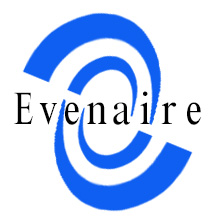
To avoid rising energy costs and work toward a more sustainable life, many homeowners are looking for ways to enjoy the same standards of comfort while reducing utility bills. Included in the Inflation Reduction Act, federal tax credits are available for upgrading to more efficient HVAC systems, such as air conditioners. These credits offer a big chunk of the installation costs, provided that homeowners choose eligible equipment and submit the appropriate form.
If you’re worried about a long, complicated process, we can share something that will help! Evenaire Heating & Air Conditioning hopes this guide will give you everything you need to earn these HVAC tax credits in 2024. Here’s what you’ll need to do.
How Do These Tax Credits Work?
These valuable tax credits for upgrading your home to be more energy-efficient are just one goal of the recent Inflation Reduction Act. With the higher cost of energy making an impact, helping more homeowners upgrade their equipment is always beneficial. The key provision of these credits is to reduce the cost of installing high efficiency upgrades. Of particular importance are the Energy Efficiency Home Improvement Credit and the Residential Clean Energy Credit.
However, in order to apply for the credits, you’ll have to fill out IRS Form 5695. Additionally, this form has to be submitted within the same tax year any upgrades were installed, not purchased.
Energy Efficiency Home Improvement Credit
Through 2032, the Energy Efficiency Home Improvement credit empowers homeowners by offsetting up to $3,200 every year for installing higher efficiency home upgrades. This can be up to 30% of the total project’s cost. Keep in mind that in order to be eligible for the maximum amount, it involves making different investments. For example, you’ll save up to $2,000 for high efficiency heat pump systems. This can be combined with the remaining $1,200 in credits for other eligible upgrades made within the tax year.
While new heat pump installation projects are a great use of the program, other HVAC upgrades like efficient furnaces and air conditioners also qualify. You should confirm the make and model’s energy efficiency rating is high enough for eligibility.
Residential Clean Energy Credit
The Residential Clean Energy Credit amounts to roughly 30% savings on a wide range of residential clean energy efficiency projects. Eligibility is restricted to homeowners seeking to update existing or newly constructed homes. While the Home Improvement Credit focuses on utilities and HVAC systems, this credit is more about renewable energy sources like solar and wind energy.
Some specific items in this tax credit include the requirement that installation must occur between 2022 and 2032. But at the same time, homeowners can keep the excess credit to reduce future taxes. This is a great way to spread out costs and keep them more manageable.
Additional Qualifications for Energy Tax Credits
Because HVAC systems are one of the biggest portions of your monthly energy costs, these tax credits incentivize the most energy-efficient options. But home energy efficiency can be improved in many other ways. Apart from the previously listed HVAC upgrades, {you could also choose|other eligible items include|you also have access to:
- Energy-saving heat pump water heating systems
- Modern electrical panel improvements
- New electrical wiring
- Enhancements to insulation, air sealing, and ventilation
- Energy-efficient cooking appliances like stoves, cooktops, and ovens
- Efficient heat pump clothes drying solutions
- Water boilers
Just like with installing one or more HVAC systems, you’ll need to confirm that your preferred make and model features the eligible energy efficiency ratings.
Three Tips for Making the Most of 2024 HVAC Tax Credits
While any of these upgrades can improve your home’s energy efficiency, some planning ahead will ensure more long-term benefits. Maximize your HVAC tax credits with these three tips:
- Conduct a home energy audit to identify impactful upgrades. Trust experienced HVAC companies to pinpoint essential products and services.
- Install new high efficiency windows and doors.
- Explore potential rebates from utility companies for clean energy upgrades. Renewable sources like solar, wind, and geothermal contribute to community power grid sustainability.
- Remember to consider financing plans offered by service providers.
Secure Your 2024 HVAC Credits with Help from Evenaire Heating & Air Conditioning
Partner with local HVAC professionals like Evenaire Heating & Air Conditioning for help with home energy audits and new installation projects. Our seasoned installers can deliver whatever you need for a more energy-efficient home.



